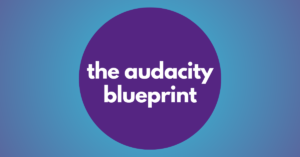There is a silent agreement you made long ago—without signing, without speaking—that continues to direct your life.
No one presented you with terms. There were no clauses or negotiations. Yet you accepted them: be pleasing, appear capable, never demand too much. Comply, and you’ll be accepted. Perform, and you’ll be safe.
You inherited this contract. From schoolteachers who rewarded obedience over thought. From parents who praised restraint, not honesty. From a culture that extols appearance over essence.
And so, you adapted.
You became efficient at suppressing resentment, fluent in the language of mildness. You bit your tongue, tucked away your instincts, and convinced yourself that playing it safe was the wisest form of survival.
But safety is a mirage.
Each time you betray your deeper impulses in the name of approval, a fracture occurs—between your outer composure and your buried self. Over time, this distance becomes intolerable.
What once passed for peace begins to rot into fatigue. The act wears thin. You sense something is wrong, but you cannot locate the wound.
This is not harmony. It is quiet disintegration.
To escape it, you do not need wellness slogans or vague affirmations. You need to unearth the unspoken commands running your life.
This demands confrontation—not comfort.
You must examine the mechanisms. Study their origin. Challenge their hold.
Not with rage. Not with drama. But with that rarest of qualities: lucid defiance.
This is how power begins—not over the world, but over yourself.
The Unruly Voice Within—and the Discipline to Command It
Imagine a courtroom where the prosecution never rests. Every hour, a new charge. Every thought, a new judgment.
This is your internal monologue.
It tracks your past like a prosecutor. It forecasts your future like a doomsayer. And it rarely allows silence.
This voice is not evil. It is not a villain. It is simply untrained.
Its power lies in its familiarity. You’ve listened so long, you no longer question its authority. You confuse its noise with your identity.
Meditation won’t silence it. But it will do something better—it will expose it.
You begin to recognize the patterns:
- The echo of a parent’s disapproval, replaying in your own tone.
- The shame attached to rest, disguised as work ethic.
- The urgency that always masks emptiness.
You start to see what is not yours. You develop the ability to separate inherited guilt from genuine conscience. And in doing so, you recover agency.
This is not spiritual awakening. It is tactical clarity.
Until you observe this voice—relentlessly and without indulgence—it will continue to operate from the shadows, shaping your life while you believe it is your own hand at the wheel.
Train the voice. Or be governed by it.
The Strategic Value of Solitude
Most people avoid solitude because they fear it represents deficiency—of love, of relevance, of stimulation.
In fact, solitude is a return. To self-governance. To signal over noise. To control over reaction.
In solitude, there is no script to follow. No face to maintain. No applause to seek. You encounter, at last, the unsanitized version of your own mind.
At first, it is unpleasant. The silence reveals what you usually outrun. You feel the itch to check, to scroll, to move.
But stay long enough, and something else emerges.
You notice patterns in your thinking. You detect the origin of your agitation. Emotional sediment, long buried, begins to rise—not to consume, but to clear.
What you feared was emptiness becomes precision. What you called loneliness becomes self-command.
Solitude, then, is not escape. It is sharpening.
And those who fear it are often those most controlled by the need for noise.
When You Cease Outsourcing the Self
We live in an age that monetizes your attention. That thrives on your disconnection. That benefits from your inability to be alone with your own mind.
And so, reflection becomes rebellion.
You do not need rituals. You do not need soft lighting or slogans about growth.
You need to face the thing you’ve spent years avoiding: the self you’ve neglected, denied, diluted.
This will not flatter you. It will not bring you praise.
But it will restore your internal hierarchy. For once, your desires will no longer be subject to the approval of others.
From this, all real strategy flows.
You will not chase clarity in a stranger’s book. You will not beg the world to tell you who you are. You will build the answer in silence.
This is not therapy. This is not healing. This is a campaign—against distraction, against inherited narratives, against mental drift.
You do not become sovereign by accident.
You must take it—thought by thought.



